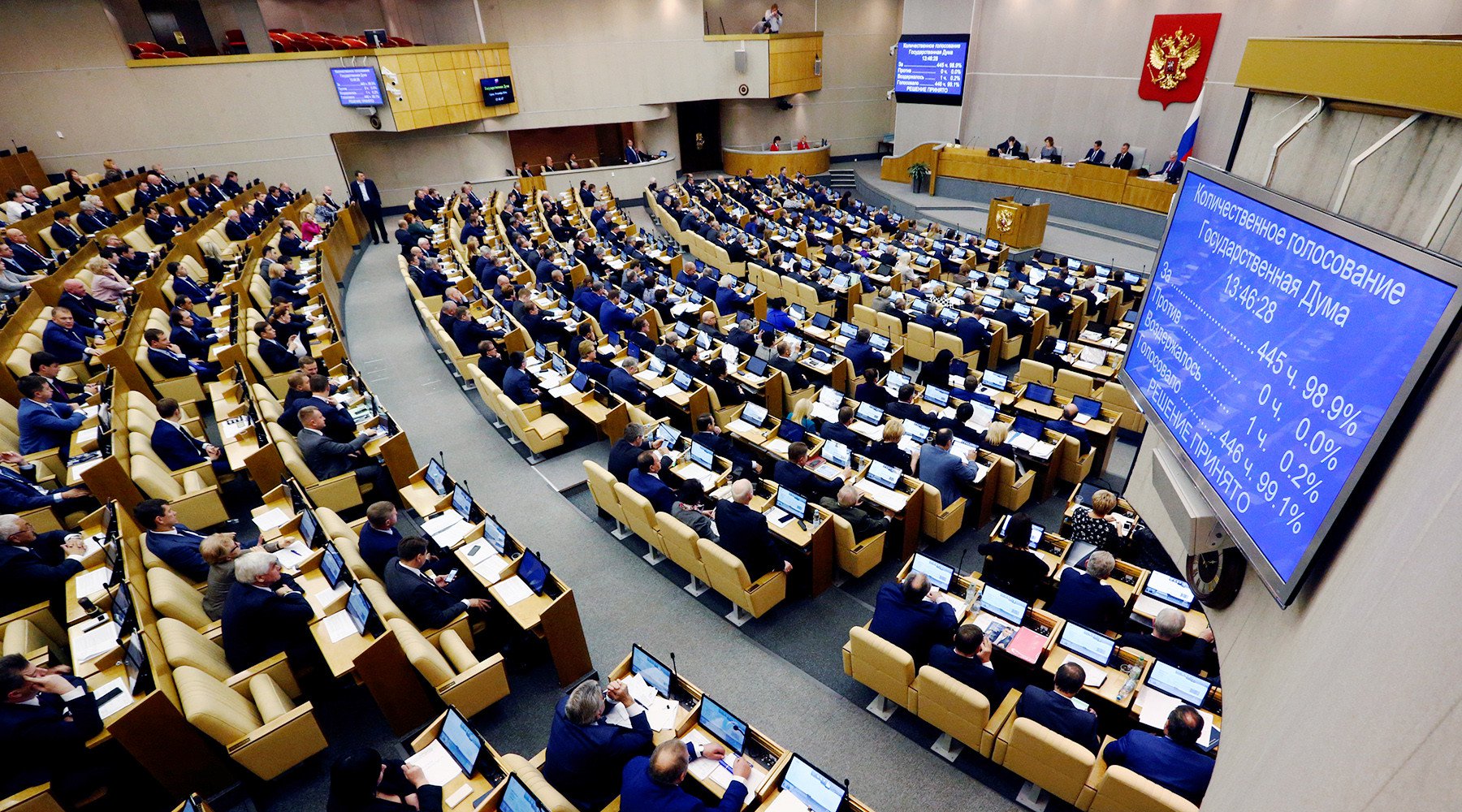Deputies from the Russian parliament, or State Duma, have given a first read to a bill that would put counter-sanctions on the U.S. and other Western countries, following the White House’s expansion of restrictive measures against Russia’s biggest companies and business people.
"The draft federal law grants the Russian government the authority to impose a number of measures, both economic and political, and aimed primarily to eliminate the so-called unfriendly acts by the United States of America," the statement reads.
Since 2014, the U.S. and the EU has imposed a range of sanctions against the Kremlin. The last round of economic sanctions became the toughest against the Kremlin, when the Trump administration announced new measures on seven Russian oligarchs, a dozen of their companies and 17 top government officials, to punish Moscow for alleged meddling in the 2016 U.S. presidential election.
The Duma’s version intends to make U.S. sanctions compliance a criminal offence, which means that any country or persons that refuses to supply services or do business with Russia will be punished by up to four years in prison. How this will be implemented is not clear.
“The U.S. sanctions are of an absolutely unfriendly type,” said the speaker of Russia's lower house of parliament Vyacheslav Volodin. “They affected over 400 Russian companies and about 200 citizens of our country. We are granting broad powers to our president and government to protect our country, our economy and workplaces.”
The bill consists of 16 counter-measures, which include a ban or restriction on the import of agricultural, alcoholic and tobacco products, as well as medicines from some countries. The measure also includes a ban or restriction on the export of rare metals, as well as the suspension of the atom, aircraft construction and rocket engines cooperation. The bill will entail halting all cooperation with the U.S. in the nuclear, missile and aircraft-building spheres, as well as introduces restrictions on various American imports.
However, the bill is supposed to be amended before the second reading. Until then, the number of measures is planned to be reduced to six. Counter-measures will not extend to vital goods, including medicines, as well as limit U.S. workers in Russia.
“We need to be able to choose the right retaliation that would be most beneficial to the Russian economy and wouldn’t harm the well-being or health of citizens,” said head of the Duma’s economic policy committee Sergei Zhigarev.
“In this war of sanctions, we are not fighting the American people or the people of the European Union,” said the rector of the Moscow's Higher School of Economics Yaroslav Kuzminov.
The U.S. is Russia’s fourth-largest trading partner with imports of American goods of $12.7 billion over last year, whilst its exports totaled $17 billion.
The sanctions war is more likely to affect the European Union, which has more business projects with Russia rather than the United States, as the imposed economic measures against Moscow focused on Russia’s energy export pipelines. That means that the sanctions would almost surely affect the Nord Stream 2 project aimed to supply Russian natural gas to Europe through the Baltic Sea, bypassing Ukraine, Poland and the Baltic States.
“We are following the draft bill on Russia sanctions with some concern, notably because of its possible impact on the E.U.’s energy independence,” said European Commission spokesman Margaritis Schinas, expressing the EU’s reservations about the Russian sanctions.







 Iran's senior military leaders described the drone and missile attack on Israel on April 14 night as “successful".
Iran's senior military leaders described the drone and missile attack on Israel on April 14 night as “successful".
 Azerbaijan officially unveiled the logo for the upcoming 29th session of the Conference of the Parties to the United Nations Framework Convention o...
Azerbaijan officially unveiled the logo for the upcoming 29th session of the Conference of the Parties to the United Nations Framework Convention o...
 Iranian President Ebrahim Raisi warned Israel that it would face a "real and extensive" response if it makes any "mistake" following Tehran’s missi...
Iranian President Ebrahim Raisi warned Israel that it would face a "real and extensive" response if it makes any "mistake" following Tehran’s missi...
 The Kazakh authorities have increased their arbitration claims against international oil companies involved in the development of the Kashagan oil ...
The Kazakh authorities have increased their arbitration claims against international oil companies involved in the development of the Kashagan oil ...



